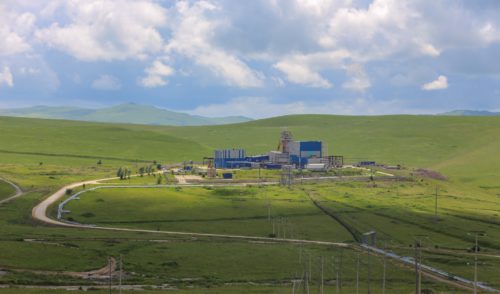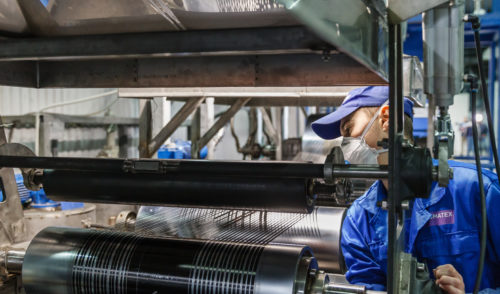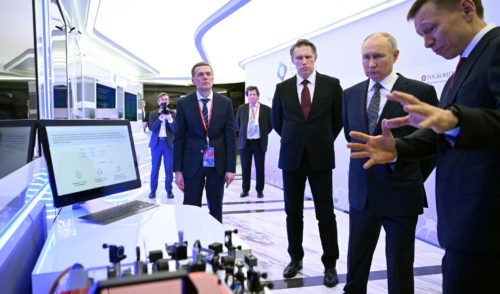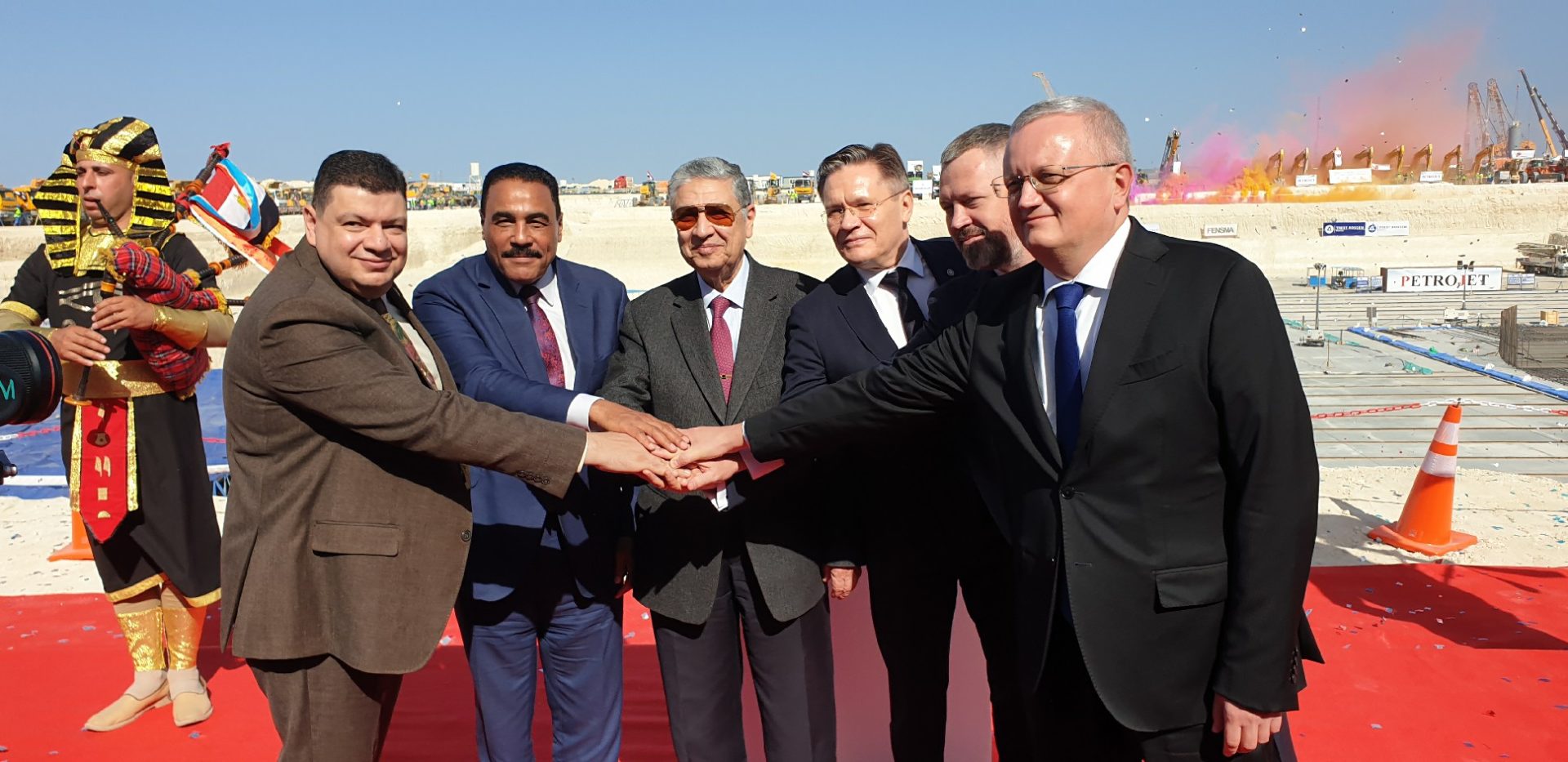
The First Concrete for the Second Unit
back to contentsOn November 19, at the construction site of the El-Dabaa NPP a ceremony was held for pouring the «first concrete» into the foundation plate of Unit 2. According to Rosatom’s Director General Alexey Likhachev, El Dabaa will make Egypt energy sufficient for 100 years and stimulate transition to a new technology level.
Construction on the second Unit entered the main stage. «It is symbolic that such an important technological event as the pouring of the first concrete into the foundation of the second Unit coincided with the birthday of Egyptian President Abdel Fattah Sisi, who is the ideological mastermind of this and many other megaprojects being implemented in Egypt today,» said Egyptian Minister of Electricity and Renewable Energy Mohammed Shaker. Earlier on 31 October the Egyptian Nuclear and Radiological Regulatory Authority (ENRRA) issued a construction license for El Dabaa Unit 2. ENRRA received an application for Unit 1 and 2 construction licenses in January 2019. It took the authority two years to study all the documents, complete all the required procedures and present the first safety report on two units. The Egyptian regulator conducted a number of inspections to check whether the site was ready for the start of Unit 2 construction. The last inspection was carried out on October 23–27, 2022. The second unit of El Dabaa was found to meet the highest international safety standards. Finally, ENRRA made a decision to issue a construction license for Unit 2.
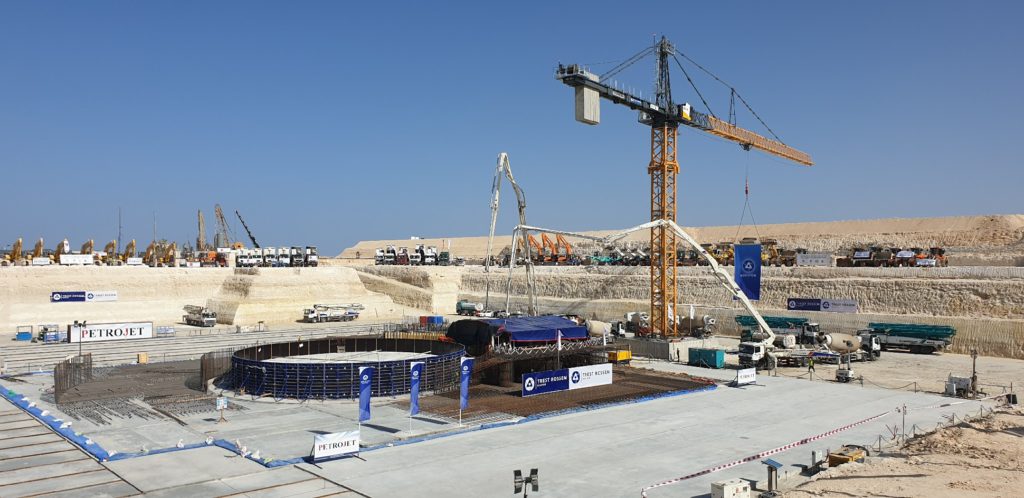
“We will continue necessary inspections at subsequent stages of the nuclear project as part of the mission led by the People, Environment and Egyptian Land Protection Authority to contribute to safe and peaceful uses of nuclear technology,” says a statement by ENRRA.
Earlier, the Nuclear Power Plants Authority (NPPA) signed a memorandum of cooperation with the National Research Institute of Astronomy and Geophysics (NRIAG). The document provides for the use of geophysical survey systems installed on the El Dabaa site to ensure nuclear safety of the facility in compliance with the Egyptian national rules and IAEA standards.
El Dabaa will make Egypt energy sufficient for 100 years and stimulate transition to a new level of technology. This was said by Director General of Rosatom Alexey Likhachev on the sidelines of the Russian Energy Week 2022 international forum in an interview for the Russia Today TV channel. “The nuclear power plant will be a clean and reliable source of electric power at a predictable price. We have extended service lives of our power reactors already twice, which means the reactor can remain operation for as long as a century,” Alexey Likhachev pointed out. He noted that El Dabaa could meet 10 % to 12 % of the total demand for electricity in the country, giving a powerful impetus to the development of the national economy and welfare. As Alexey Likhachev explained, nuclear fuel accounts for as little as 4 % to 5 % of the total costs of a nuclear power plant, so even if the price of uranium or nuclear fuel spikes the costs will be kept under control and the construction process will not be affected.
“Another important thing is that nuclear energy is not only reliable but also ‘green’. A nuclear power plant can prevent up to 15 million tons of carbon dioxide emissions annually, producing a positive effect on the environment and human wellbeing. This is a vivid example of transformations in the energy industry — a transition from polluting to clean source of energy,” Alexey Likhachev stressed.
According to Rosatom’s Director General, nuclear stimulates science, education and culture. “Deployment of nuclear technology ensures access to nuclear medicine, sterilization equipment for medical tools, and so on. It should be noted that radioactive isotopes are used in the oil and gas industry. As you see, a nuclear power plant gives momentum and benefits other national industries,” Alexey Likhachev explained.
He also mentioned construction deadlines: the plant should be commissioned by 2028. Two years before the deadline, tests will begin and all fundamental processes related to the plant operation and security, connection of the plant energy systems and synchronization with the national grid will be established and streamlined.
“Put it simply, there will be much preparatory work, including construction, to be done by 2026. Starting from 2027, there will be much testing, first criticality and then connection of four 1,200 MW reactors to the grid,” Alexey Likhachev concluded.


